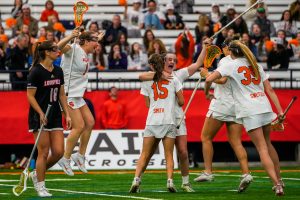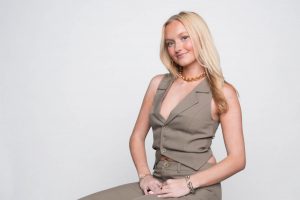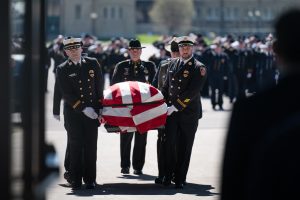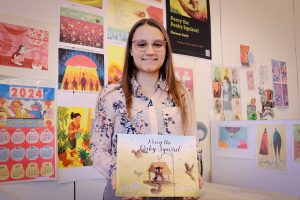“A chosen family”: 30 years later, a chorus sings on
“A chosen family”: 30 years later, a chorus sings on
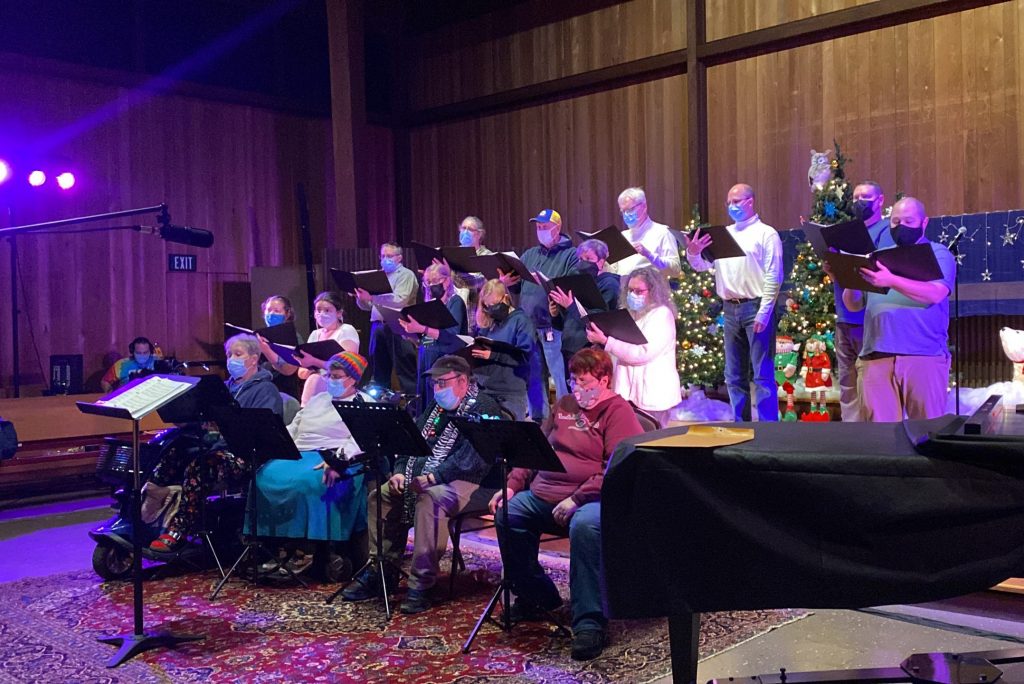
The lights dim over the May Memorial Unitarian Universalist Society nave; the only sound is the shuffling of papers and the clearing of throats. The members of the Syracuse Gay and Lesbian Chorus are lined up on stage, patiently waiting for first instruction from Stephen Gamba, the chorus director. Standing in front of the group, Gamba takes a breath, raises his hands, and the chorus breaks out into their first song.
The Syracuse Gay and Lesbian Chorus was founded in 1991. Following a local performance by the Rochester Gay Men’s Chorus, people were inspired to form a similar group in Syracuse. Now, three decades following its inception, it has become an inclusive group for people of all ages, identities and skill levels to come together and sing.
Chairperson and chorus member Earl Taylor discovered the group at the Central New York Pride festival in 2009 and joined that fall. Taylor, who used to sing in groups throughout high school and college, enjoyed the first season and welcomed the chance to sing again.
“Before I started this, I was kind of in a dark place,” he said. “And getting into this group, I don’t know, it just gave me kind of something to look forward to every week and it’s good.”
Stacy Sceiford is the secretary on the chorus board. She joined the chorus after hearing about it through a friend and seeing a show with her husband (Sceiford is a straight ally).
“Creating music with other people is just something that is inherently important in my life,” Sceiford said. “And I find that, you know, it’s a social activity, because I have friends in the chorus, and it’s a spiritual activity because the music is something that speaks to my soul.”
In addition to it being a fulfilling activity for her personally, her involvement with the chorus has also become a family affair. Kris Sceiford is Stacy’s child and the youngest member of the group at 15 years old. Kris, who is non-binary and uses they/it pronouns, just joined this year, making it their first season with the group. While their time with the chorus has been short, they have enjoyed their experience so far.
“I’ve gotten a chance to sing and have fun, get back into music, and just hang out with gay people,” Kris said.
Outside of Kris, the chorus does have an older skew, but despite this, it attracts people from all walks of life. Gamba is the choral director at Auburn High School; Sceiford is the director of religious education at May Memorial; Taylor works as a paranormal investigator.
While the group welcomes people from all backgrounds today, it wasn’t initially meant to be that way. Originally, the chorus was supposed to be a male-only group, but these plans changed when a few women made the decision to sign up as well. One of those women is Deborah Hardy, a retired financial planner. Now at age 70, Hardy is the group’s oldest member and is thrilled to continue singing with them. She remembers what it was like first coming together to form this group – and how scary it was to do it.
“The idea of standing up in front of anybody and everybody and declaring yourself to be a gay person was just a scary as hell,” Hardy said. “You didn’t know who was going to come to the concert and what their attitude was going to be.”
Hardy recalled the group having a few shows picketed early on but said the group has gone on since without facing more severe backlash.
The group’s first concert at Plymouth Congregational Church featured 18 members performing a setlist that included a wide variety of songs, from more serious and moving songs to “goofy cabaret numbers” as Hardy would call them.
Hardy also noted some of the challenges that have come with being a member of the group. Some of the challenges are financial, including purchasing enough sheet music, renting office and rehearsal space, and paying the director.
The chorus also has an open-door policy in which anyone, no matter skill level or ability to contribute financially, is allowed to sing with the group. Hardy noted that this has led to them having members who were facing difficult personal circumstances at the time of their involvement. One instance occurred where a member was suffering from drug addiction and at times acted out. Despite this, Hardy and the other members provided a welcoming environment.
“It was important to her and it helped her stay clean to be part of the chorus,” she said. “You do what you can.”
Gamba also noted that while the open-door policy creates a welcoming environment, it also requires him “to try to find a good way to give [the singers] the constructive criticism that they need.”
“Some of us in conducting capacities, we can have a tendency to be a little too blunt and … it’s hard for some people to take that,” he said. “Our experience overruns the gamut of people who have gone to music school all the way down to just people who just like to come in and sing.”
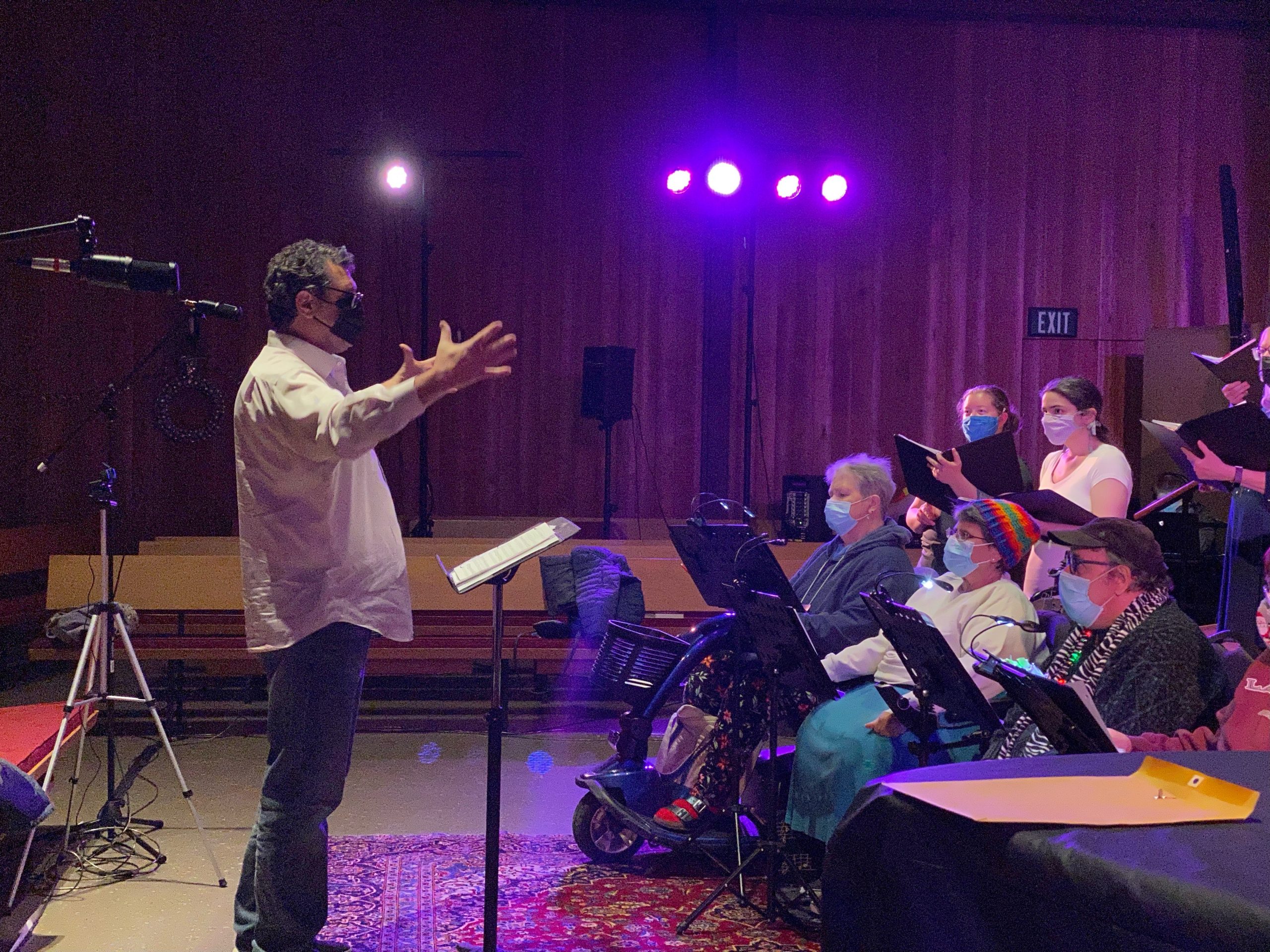
Despite the welcoming community, recruitment has been one of the more recent and significant challenges the chorus has faced. E. Michael Whitmore, the chorus’ music committee chair and member-at-large on the board, said that it was difficult finding new members to pass the torch to.
“Every time we go to Pride, we get a lot of students coming out of high school, going into college and are like, ‘Oh, I really want to do this,’” he said. “But when it comes time, we don’t see anybody, even though we send out an email saying, ‘Hey, we’re starting up.’”
Whitmore went on to add that it was also difficult finding members to table local events because they were older, which creates a bit of a vicious cycle of needing younger members but not having the manpower to recruit them. Hardy shared Whitmore’s sentiments on the need for new younger members and was blunter in her message on the topic.
“Without younger people, we’re not gonna survive,” she said. “I’m 70. I’m not going to be around forever.”
In addition to struggles with recruitment, the COVID-19 pandemic put the chorus through a difficult period. According to Gamba, the chorus was three weeks into rehearsing for their spring concert in 2020 when everything suddenly shut down as the virus began to spread. Initially, they tried to hold some practices and meetings over Zoom, but their attempts were met with little progress or success since, in Gamba’s words, “you can’t do music over a computer because everybody’s bandwidth is different.”
Stacy agreed that the Zoom meetups were only effective to a certain extent, adding that they “didn’t fulfill those needs that people had to be in community together.”
“It’s a big part of my community,” Stacy said. “And it’s a huge part of a lot of the other members’ community too. And so there was this whole like, year plus, where, you know, your community just wasn’t really available and connected. And that, you know, it really hurt a lot of people.”
Even when vaccines were accessible and cases were low, not everyone was ready to return. According to Taylor, some members didn’t feel comfortable returning to the group due to the potential risk of getting themselves sick, while others didn’t want to sing with masks on. Taylor says about 15 members didn’t return this season, leaving them with 20.
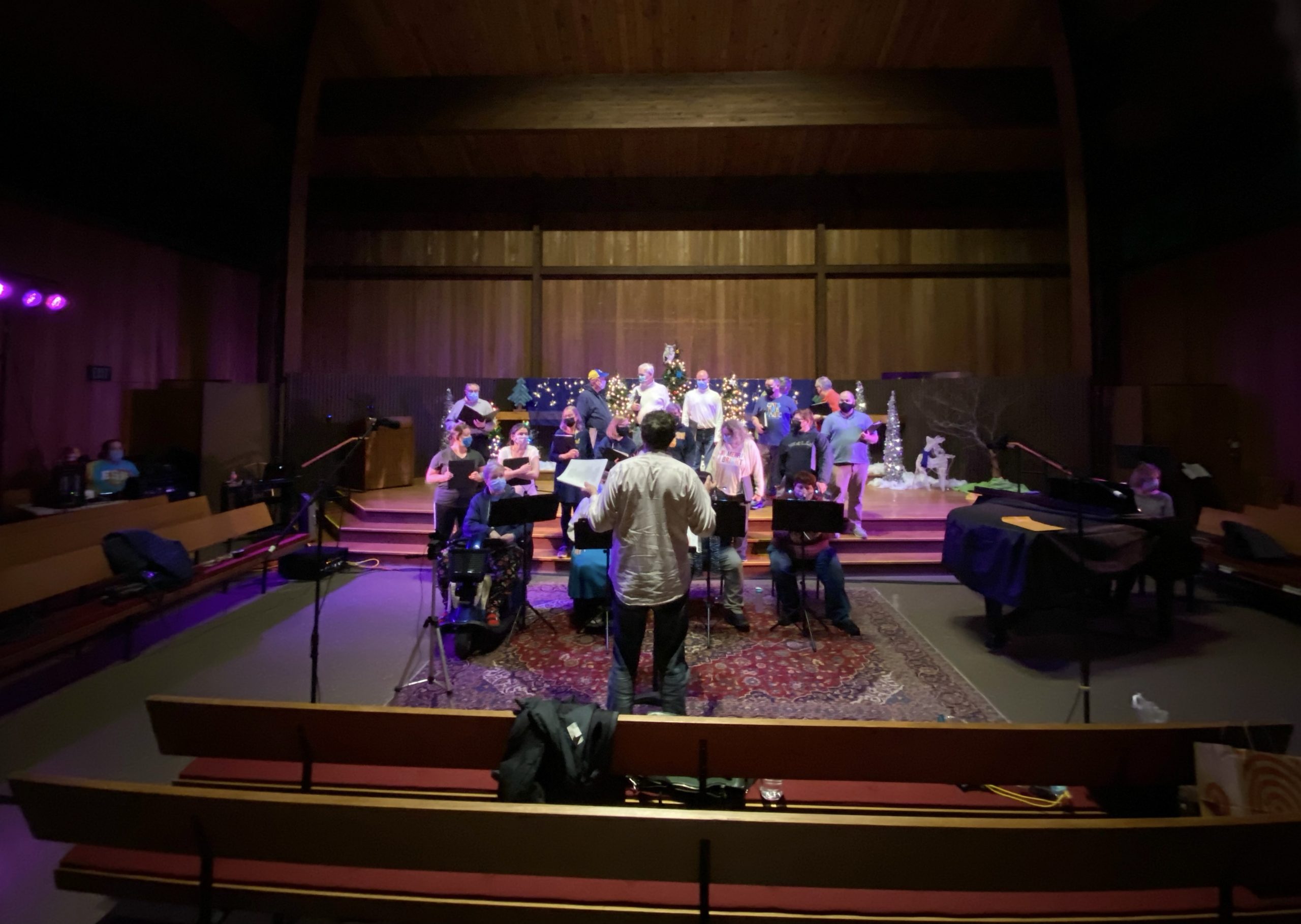
Nonetheless, the chorus marched on and finally returned to the stage for their annual Holiday concerts, performing at May Memorial on Dec. 10-11. They also offered a live streaming option for the first time. At the final rehearsal, the night before their first show, all of the members were occupied with something different; Some were buying last-minute tickets for friends and family; Gamba, the director, was going over details with the pianist.
Sceiford said it’s been “a bit of a roller coaster ride” getting to this point. Whitmore was excited, but also said, “I’ve been singing Christmas songs since September, and I can’t wait till it’s over for the holidays.” However, following a year of inactivity due to the pandemic, there was palpable excitement in the air to be back in person and perform alongside each other once again.
Additionally, in spite of all of the challenges and obstacles, the chorus has faced in the past three decades, the bond the members share is a constant among the change. This was emphasized by Hardy, who says how “a lot of people feel that this is their chosen family,” and shared her own experiences that exemplified this belief.
Hardy, who is currently dealing with physical mobility issues, struggles to get to rehearsals on her own. While she can drive, she needs assistance getting in and out of her van. However, Dan McMaster, a fellow member of the chorus, drives out to her house at 6 p.m. on Mondays, an hour before rehearsals start, to help her get into her van. He then follows her home to help her out of the van after practice ends at 9 p.m. It’s an example of the family-like bond present between the members.
“There are people in the chorus that are some of the best people I’ve ever met,” she said. “[They will] do anything for you, drop everything and come help you.”
Everyone also shares similar hopes for what the future holds for the chorus. Whitmore and Taylor hope more young people join the chorus to keep it alive. Sceiford is excited for their sound to continue evolving and to hopefully stay singing in person. Kris admits that they are “not actually expecting anything. I’m just here to have fun.”
No matter what the future holds, the chorus will continue to be a close-knit community that welcomes everyone. Gamba thinks back to when a former member moved away to be closer to family and recalls how the loss of members is felt by everyone. It’s indicative of the strong relationships formed from the chorus.
“It’s a nice little family of people,” he said. “And it’s, it’s really a privilege to be a part of that.”

